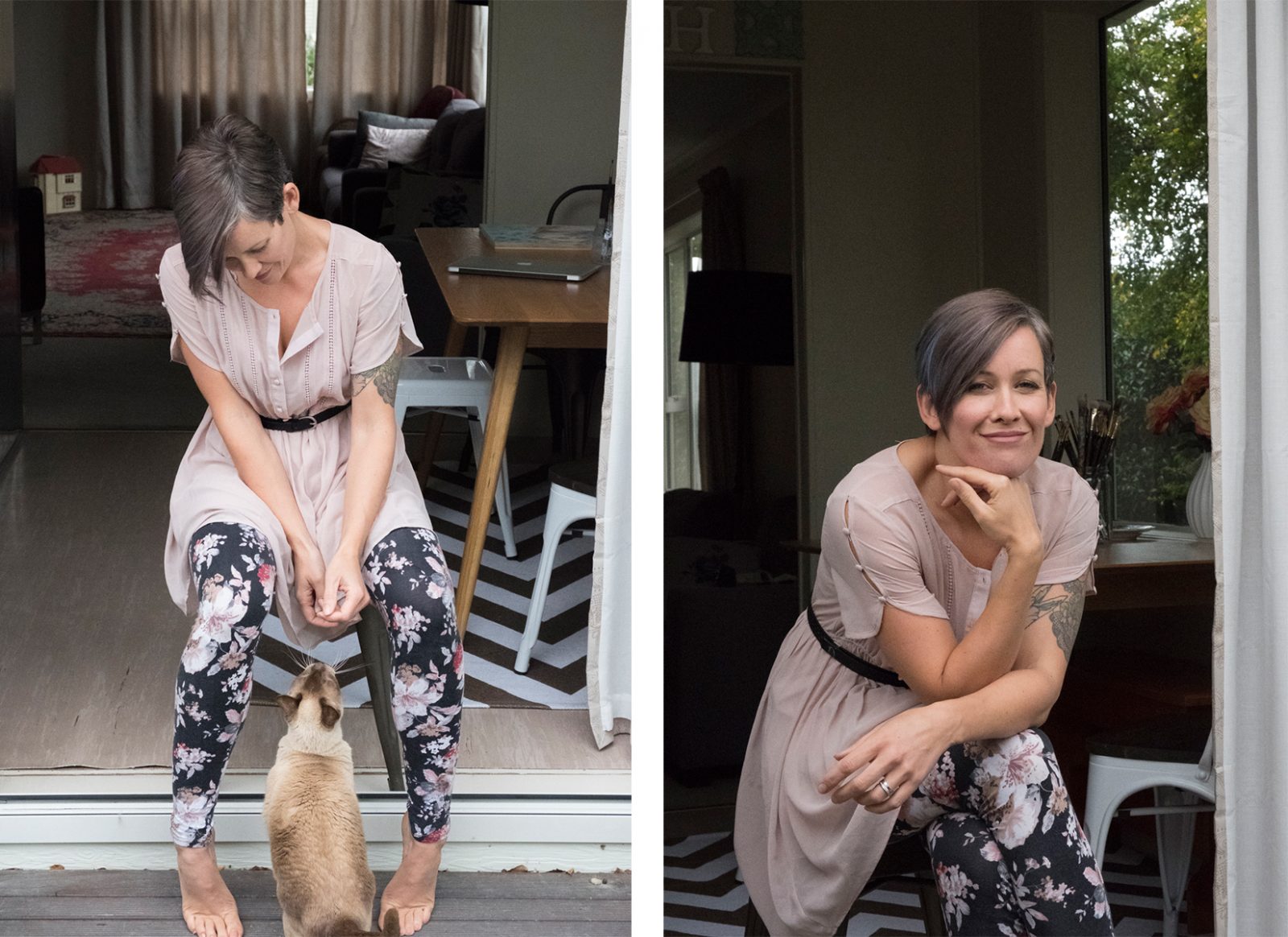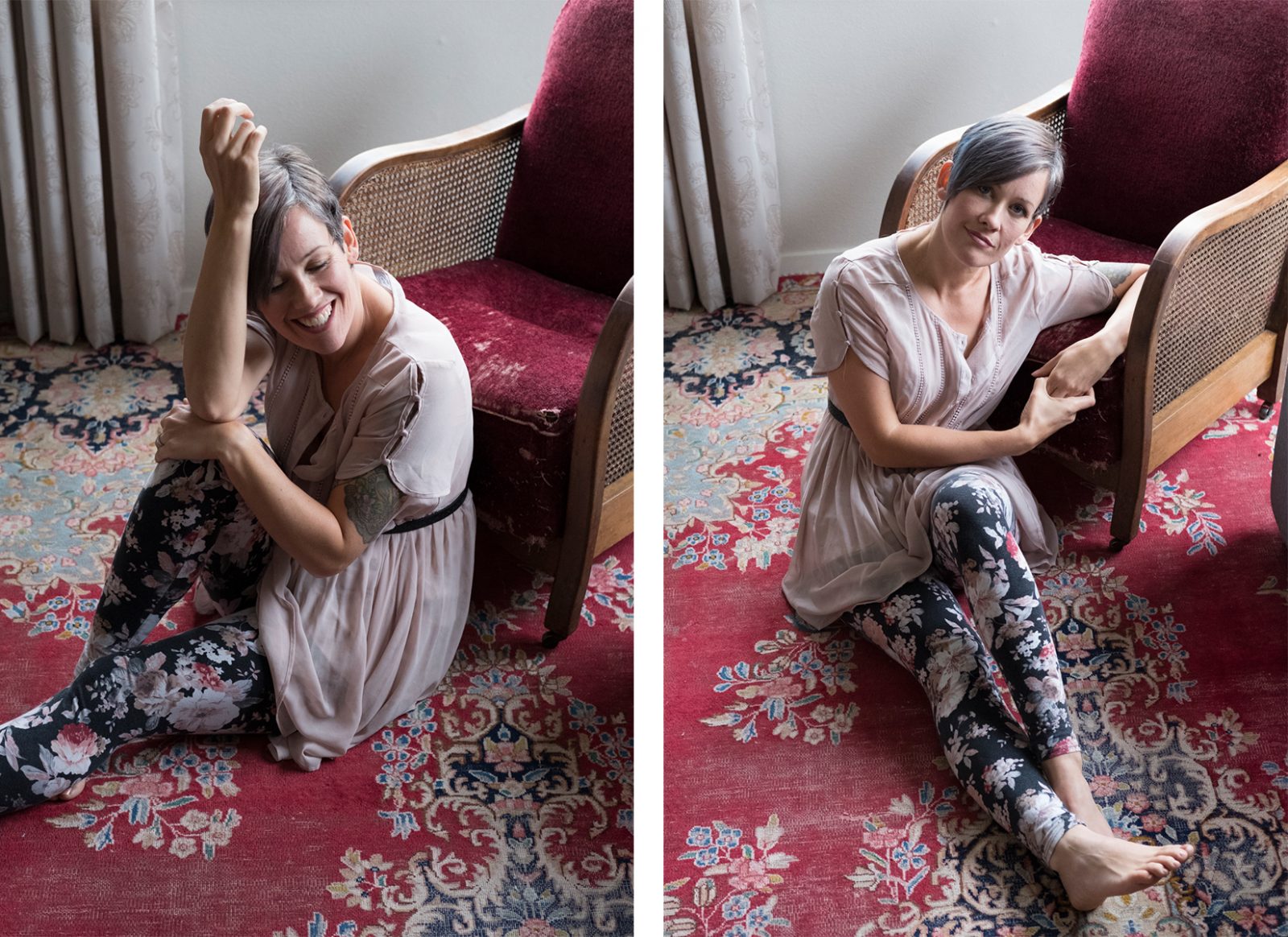Meredith Marsone’s oil paintings have a haunting familiarity. It’s hard not to see yourself reflected in each eye, lip, and hand. Working in traditional oils, her abstracted photo-realistic depictions express a swath of emotions and human experiences in a subtle and mysterious way. Read on to find out more about her process of perseverance and deep love for Klimt.
Does living in New Zealand inspire you or does the insane beauty become banal after seeing and experiencing it every day?
It’s one those annoying human traits- we stop seeing the things that are always around us no matter how breath-taking. But even so, if I can remember to be mindful, it’s striking how lucky we NZers are. I’m not much of a landscape painter but there are definitely times the scenery makes me think twice about it!
When did you realize you were able to master a photorealistic style? Was it a gradual growth as your skill level increased or a natural inclination?
I’ve always just wanted to paint people, and realism captured my attention in other artists’ work. But starting out it was endless frustration and failure! I was seriously bad at it. And my parents and my sister still have the paintings to prove it, much to my embarrassment. It was a very gradual process, spread over years of attempts to just keep getting better. Eventually, something clicked and I didn’t have to try so hard, the foundation had finally been laid. Now, it works far more often than it fails.
Do you remember the first painting you saw that moved you?
In the flesh, it was Klimt in Paris. There were hundreds of people at this amazing retrospective of his work. I elbowed people out the way to fight my way up them. Nothing was going to stop me seeing these paintings up close. It was like visiting dear friends that I’d only ever seen in books. And I was awe struck. It was a very emotional experience and when it came time to leave I felt like I was saying a last goodbye to a lover. My heart ached like I might never see them again.



Why do you paint people?
There are two reasons I paint people; it’s the best way I know to communicate the human experience, and I love the challenge of rendering faces, eyes, skin, hands. It’s very satisfying.
Tell us a little about your process. What about it do like the most?
There are definitely good and challenging aspects to all stages of making a painting. I love starting, setting up my palette, laying out my tools, and making those first marks as I enter a state of flow, but it’s also a bit terrifying for some reason. The bulk of the time working on the painting I’m focussing on the piece so intently, allowing my intuition to operate as much as possible and get my thoughts (and fears) out of the way. If I’m not in flow this is the time it can feel tedious, like there’s a large mountain to climb and I’m wearing flip-flops! It’s crucial to push through these feelings if they come up, refocus and realise most people give up at this point. I want to make my best work, so this alone can motivate me through. Finishing the piece can be the scariest time of all but also the most rewarding. This is the time I need to lose the “preciousness” I feel and risk its destruction but still retain the sense of importance of the painting. If it sounds like a paradox, I guess because it is. This is the riskiest stage but if I can pull it off, I will create something I’m really proud of.
Are you intentional about the message of your paintings or do you prefer to let an audience interpret on their own?
There’s always a deeper meaning to my work but whether the viewer picks up on it or creates their own is not important to me. Connection with the work, however that arises, is the most valuable thing to me as an artist.
I often find that portraiture invokes sympathy with the subject, but the slight abstraction of your work allows the viewer to see instead, themselves in each face, each gesture. Do you find this is true for yourself? Are you able to imagine yourself in the scenarios that you paint?
They generally are self portraits in some way. Not always in physical likeness but more an emotional or psychological portrayal of something important to my own experience. My paintings are not “portraits” in that they are not usually paintings of a specific person and their own individual experience (unless it’s a commission). They are more paintings of a figure that can communicate the message I intend for the piece. In that way, I hope my audience can find a broader relatability in my work.
How long does it take for each painting to be completed? Additionally, how do you know when something is “done”?
I usually have several pieces on the go at the same time so each one takes about 2-4 weeks depending greatly on size and complexity. When is a piece “done”? It just feels finished. I know I’ve given it everything, there’s nothing left I can contribute and I can see it’s ready to exist on its own.



Besides painting, what is your favorite artistic medium (music, film, writing)?
I used to sculpt a lot as a kid. I think I should get into that again, just for fun! I loved it! Thanks for the reminder!
What do you think the artist’s role is in our world of decreasing visceral experiences? How can art bring us back to enjoying and experiencing real life interactions in our digital culture?
That’s a tough one. As people are more and more distracted and have shorter attention spans, less real life experiences and more online life-living (if you can call it that), it’s a real battle to get people’s attention and to also save your own for what’s important. Our digital age is producing the phenomenal ability to learn, connect and grow but at the same time offers endless mindless distraction taking us away from our loved ones and living a meaningful, satisfying life. Artists have often embraced the political voice and painting about this attention divide can be really powerful. We all need constant reminders of what’s truly important and art has a significant role in keeping us mindful and aware. I think I may just have to paint about that!


Check out more of Meredith’s work here.
Photos by Angela Lewis.


Comments